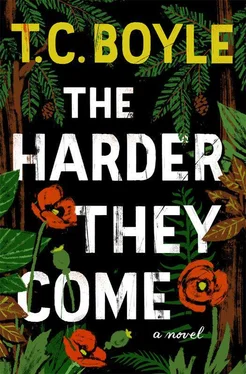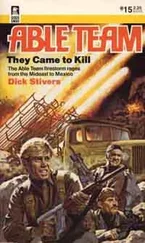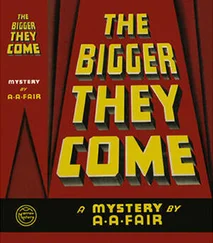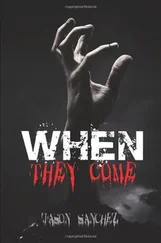“See that road up ahead?” He indicated it with a thrust of his chin.
“You think that’s where they’re headed?”
Sten shrugged. His stomach rumbled. “They’re in a spot now. They hadn’t counted on us being here, that’s for shit sure.”
Another fifteen minutes ticked by on the dashboard clock. And then finally, inevitably, the driver’s door of the pickup flashed open and the older Mexican stepped out and started back down the road toward them, his steps slow and measured, the cap still at the same jaunty angle. His face was flat, boneless, almost as if it had been scooped hollow, and his nose was flat too so that Sten wondered if he’d once been a boxer. Or a rodeo clown.
The man came up to the window and leaned down to look in at him. “You need help?” he asked, his accent slow and stopped-up so that “help” came out as “hell.”
“No,” Sten said, shaking his head for emphasis. “No, we’re fine.”
The man seemed to consider this a moment, his look unwavering, a hint of menace seeping like a tincture into his squinting brown eyes.
“How about you?” Sten said. “You need help?”
Sighing, the man drew himself up and said, “No, we doan need no hell,” and then he looked off in the distance as if to find the words there for whatever was to come next.
Carbofuran. It was one of the deadliest pesticides known to man. A couple drops of it would kill you. And what happened to the bears? They died clawing at themselves, their guts on fire.
“You sure?” Sten said.
Another sigh. The man bent to look in the window again, his eyes hardening. It was then that he let the flap of his shirt fall open so that Sten could see the polished wooden handle of the revolver tucked in his waistband, but that was a mistake and it was going to cost him because he didn’t know who he was dealing with here.
Sten shoved open the door so suddenly the man had to step back, and then he was out on the naked strip of pavement, unfurling himself to his full height so that now he was the one looking down. “You know what this is?” he demanded and he could feel it coming up in him all over again and there was no stopping it, though the man shot a look to his compatriots, who flung open the doors of the pickup even as the acrobat in back sprang out and began coming down the road toward them and Carey hissed, Sten, come on, it’s not worth it, let’s go . “This is America, you son of a bitch. The United States of America. You get that?”
The man rocked back on his heels, his eyes locked on Sten’s, and for a moment Sten thought he was going to spit at him the way the prisoner had in Costa Rica, but that didn’t happen and a good thing too because he was a beat away from losing it. Here was guilt. Here was the shit of the world come home to roost right here in the redwoods. The man scuffed his boots on the pavement, then swung round without a word and started back for the truck, his arms outstretched to usher the other three along with him. Sten watched them climb back in. The doors slammed. Sun glinted off chrome. And the truck sat there — and so did Sten — till the minutes became hours and Carey, in over his head, talked himself hoarse on the theme of giving it up, of getting out of there before somebody got hurt, because they weren’t vigilantes, were they?
Finally, and by now it was past noon, the pickup’s engine roared to life and the driver cut the wheels hard even as the man in back — the acrobat — leapt down and started up the road on foot. He was lithe, tall, rabbity, and by the time the driver had turned the truck around and started back down the hill, he was jogging up the road, the bill of his cap pulled down tight now, fashion sacrificed to exigency. “Where’s he going?” Carey wondered aloud.
Sten didn’t answer. He just put the car in gear, swung a U-turn and followed the pickup back down the road, all the way down, past the supermarket and back out onto the Coast Highway, where it turned north and kept on going. At speed. And here was where the big engine had the advantage, though Sten tried gamely to keep up. By Cleone, they’d lost them, but Carey got the 911 dispatcher on the phone as soon as they were in range. “What do I tell them?” he asked, his face blanched and the armpits of his T-shirt soaked through with nervous sweat.
Sten went silently through the list of crimes — Being Mexican; Driving a New Ford XLT; Buying Too Many Groceries; Acting Suspicious — but he was already signaling, already looking up the road for the next left so he could turn round and head home. It was one-twenty in the afternoon. The meat was rotted, the milk gone sour. And the eggs. Nothing worse than the smell of rotten eggs. He turned to Carey, Carey with his bouncing knee and too much white in his eyes, Carey in his jogging togs, Carey the vigilante. “Just tell them they were brandishing a weapon,” he said. “That ought to do it.”
“DOESN’T HE SCARE YOU?”
She was in the kitchen of the house on the banks of the Noyo, a weak sun sifting through the trees, and Christabel, who didn’t even know him and who was probably jealous — definitely jealous — had called to see how she was getting along in exile.
“No,” she said, “not at all.” And that was the truth. Adam could be as strange as strange got, no doubt about that, but what Christabel didn’t understand was that underneath there was an essential sweetness to him, a boyishness, an innocence you didn’t find in the types that took up space in the bars and stomped up and down the aisles of the hardware store with the oh-so-pleased-with-themselves smirks on their faces, which, sadly, seemed to be the only types available to women like her and Christabel. Plus, he was young. And handsome. A whole lot handsomer than her ex, Roger, who’d let himself go till he wasn’t much more than a belly with pants on it — or anybody she’d dated since. And built. She told Christabel that, as if she needed any justification, because who she dated was nobody’s business but hers, not even her best friend’s.
“He’s like a rock. I don’t know what he does — I don’t see him lifting weights or anything — but he’s hard all over.”
“Don’t get dirty on me now.”
She laughed. “I’m not. Really, I’m not. Just stating the facts.”
There was a long exhalation on the other end of the line, Christabel blowing out the smoke of her cigarette, and she could picture it, the way she threw her head back and pursed her lips as if she were channeling the smoke through an imaginary portal in the sky and sending it right on up to heaven, to God Himself, who, after all, was the one who invented nicotine. “You’re just a cougar, that’s all.”
She didn’t deny it. In fact, it brought a smile to her lips. “Who me?” she said, and they both laughed. Then she said, “I thought you gave up smoking?”
“I did.”
“So what’s that puffing I hear?”
“Just having a little taste to see what I’m missing. Isn’t that what you’re doing — with Adam? Because don’t tell me you’re serious—”
It had been a week since she’d moved in and if he hadn’t been around much, that was all right. He was mysterious, always out in the woods, and when he wasn’t he was lying supine on the couch in a clutter of books and notepads or just staring into the gray void of the TV, which looked as if it hadn’t worked in years. If he had anything to say at all it was about Colter — Colter this and Colter that, the same story, over and over. And the cops, the cops really lit him up. Ditto the Chinese. Colter, the cops and the Chinese, those were his themes. When he was talking, that is, which wasn’t much. He disappeared early each morning, before she was up, but he was always there for dinner and always glad to see the food dished out on the plate, whether it was meat loaf or mac and cheese or bean burritos. Glad for the sex too. She’d never known anybody like him — it was as if he’d been locked up in a cage his whole life. He wanted it. He needed it. He was hungry for it. And so was she. She’d been abstinent so long she’d forgotten what it was like to have your blood quicken just thinking about somebody, to feast on the smell of him, to find yourself getting wet even before he had his clothes off, even before he touched you.
Читать дальше












